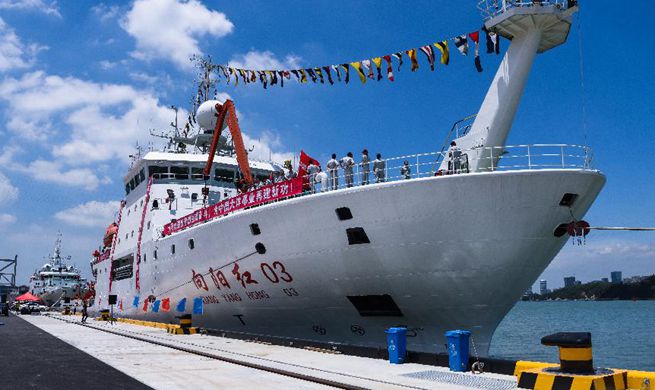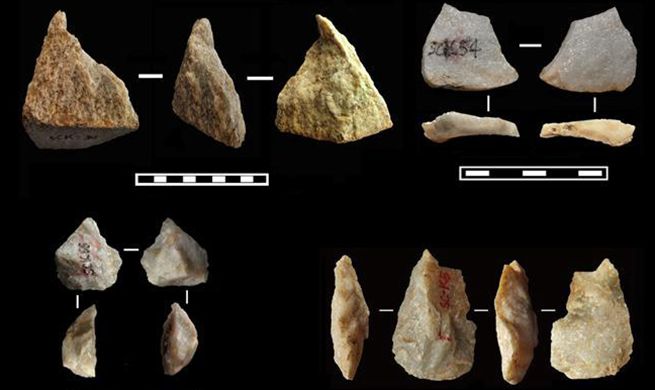NEW YORK, July 14 (Xinhua) -- The escalating trade tensions between the United States and China have triggered widespread concerns among farmers and experts in various U.S. industries over the impending impact on the country's economy.
Senior U.S. energy experts said that the tariff battle escalation will not only harm the energy industry in both countries, but also impede the development of global energy industry.
Michael D. Maher, senior program advisor for the Center for Energy Studies at Baker Institute, said that it is not wise for the United States to block China out as the two countries are large energy importers and exporters across the world.
"China is a huge market for the future of the U.S. oil and gas industries and tariffs put them at real disadvantage," Maher said.
"If you block out of the largest oil market of the world -- one that's going to continue to grow -- that is not in the U.S. interest to have those tariffs on it," Maher added.
The Trump administration first imposed a 25-percent tariff on 34 billion U.S. dollars' worth of annual imports from China, with another 16 billion dollars on the way, and then went further to threaten China with a plan to impose 10 percent tariffs on another 200 billion dollars' worth of Chinese goods.
Facing the Trump administration's punitive trade policy, China has been forced to proceed with its countermeasures.
Gabriel Collins, the Baker Botts fellow at the Center for Energy Studies at Baker Institute said that consumers usually suffer the most during tariff escalation because companies have no other choice but to pass some of the price burden to the consumers.
Collins pointed out that the burden of the tariff has to go somewhere. "So the question is: does the company effectively eat that or pass some of it to the consumer?"
"But the bottom line is either way you are destroying economic value in that process. It's not a welcoming event by any means," the expert added.
Farmers of the Iowa Soybean Association said in a statement that there are winners and losers in every trade dispute. "The soybean industry is a loser if we become a residual, rather than primary, supplier of soybeans to China."
"U.S. soybean prices are already far below the cost of production and will continue to erode, placing additional pressure on farm families who have already experienced a nearly 2-dollar-per-bushel (1 bushel equals to 36.4 liters) decline since March," the statement said.
Anton Bekkerman, an agricultural economics professor at Montana State University (MSU), explained why the current White House trade tariff policy is actually counterproductive toward U.S. economic and security interests.
"I talked to grain merchandisers in Minnesota. They told me they were hiding under their desks from bullets coming through the windows, and hoping not to get hit," Bekkerman told Xinhua.
"The infrastructure impacts have already been enormous," Bekkerman said, adding that the negative effects on the economy will spill out of the tariffs lists released by the White House.
Moreover, the damage is not only to America's economy but also to its international reputation, said Vincent Smith, another professor at MSU specialized in agricultural economics.
The trade tension is "isolating" the path of the United States from the real world, Smith said.
Echoing the view, Baker Institute's Maher said the United States is not just putting tariffs on goods from China, but also doing it elsewhere.
Maher argued that imposing unilateral tariffs will cut access to goods, increase cost for the consumers and slow down economic growth.
Maher said multilateral solutions are considered better options for trade disputes, as concerned countries can sit together and discuss how things can be done.
(Xinhua reporters Gaolu in Houston, Peter Mertz, Huang Heng in Los Angeles, Ye Zaiqi in San Francisco, Xu Jing, Miao Zhuang, Wang Ping in Chicago contributed to this report.)

















